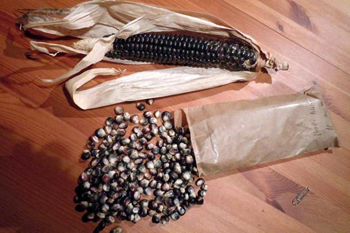As the COVID-19 wave sweeps strongly across the country, including in Tamil Nadu, mental health experts say the pandemic has triggered panic attacks among those who tested positive for the virus, causing bouts of depression and even driving some to the brink of suicide.
According to experts, nervousness, fear of contamination, panic attacks, constant reassurance seeking behaviour, sleep disturbance, excessive worry, feelings of helplessness and probability of an economic slowdown are the major factors leading to depression and anxiety among the people.
Potential job losses, financial burden, uncertainty about the future and fears of running out of food and necessities add to the worries.
Online platforms too have seen a growing number of people seeking help for mental health issues, ranging from anxiety and loneliness to concerns over productivity and job loss since the outbreak of COVID-19.
Director of Institute of Mental Health here, Dr R Purna Chandrika said towards April end about 3,632 calls were received and psychiatric counselling was provided to 2,603 callers.
"We have dedicated services at our centres in the districts and the calls meant for government medical college hospitals are routed to the respective institutions," she said.
Due to heavy virus caseloads, making this city the major contributor to the state's tally, the Greater Chennai Corporation too started a free helpline to help residents cope up with stress during the pandemic.
"From the psychological perspective, we don't find a single human being who is not feeling some degree of stress or anxiety due to coronavirus. The intensity and impact varies from person to person," said Lt Col N T Rajan, director of Chennai-based Mastermind Foundation.
The organisation is involved in free counselling throughout India ever since the first case of the deadly virus was reported in the country.
The foundation's recommendation on not to deploy the vulnerable in the police force, especially those above 50 years and women personnel with children below five years for COVID-19 related duty, was accepted and implemented by the Punjab government.
Psychiatrists feel that further worsening situations could lead to severe mental health issues, even triggering suicidal tendencies.
"Further worsening depression may lead to severe mental health issues and suicidal tendencies," said Dr S Senthil Kumar, a psychiatrist.
However, not all of them require medicines, he added.
"The situation is serious. There should be counselling at three stages--on coping with the virus, how to face it if tested positive and how to face life once treated and discharged from the hospital," Rajan said.
Awareness was of paramount importance, he said and warned the pandemic could cause panic attacks while in hospital or drive them to the brink of suicide.
Tamil Nadu, one of the worst affected states with a virus count in excess of 74,000 as of Friday, has witnessed a few instances of suicides allegedly related to COVID-19.
Hari Singh, owner of popular 'Iruttu Kadai' halwa shop in Tirunelveli, allegedly died by committing suicide on Thursday after being tested positive for COVID-19. He was 80.
Earlier in May, two COVID-19 patients in their 50s allegedly committed suicide in separate instances, at the government hospitals they were admitted to for treatment.
In the city corporation limits, a three-member team comprising a psychiatrist, counsellor and a social worker work for the respective zones.
"We direct certain sections of people like those with withdrawal symptoms and people requiring pills, to visit the doctor at their corporation zonal at a specific time, for medicines," a health worker of the civic body said.
Health platform, Lybrate reported an increase of 180 per cent in online patient consultations related to mental health on its platform between March 1 and June 20 across the country.
The largest increase came from Mumbai and Delhi, followed by Pune, Ahmedabad, Chennai and Bengaluru.
The biggest jump was witnessed in the age group of 25 and 45 years.
 In the study, a rat model of metabolic syndrome fed a high-sugar and high-cholesterol diet and given blue maize extract showed significant improvement in systolic blood pressure, high density lipoprotein (HDL) cholesterol, and triglyceride levels compared to those not given the extract.
In the study, a rat model of metabolic syndrome fed a high-sugar and high-cholesterol diet and given blue maize extract showed significant improvement in systolic blood pressure, high density lipoprotein (HDL) cholesterol, and triglyceride levels compared to those not given the extract.




Comments
Add new comment